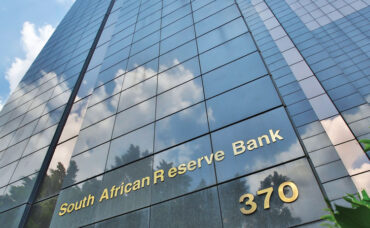The South African Reserve Bank (SARB) is one of only nine central banks around the world with private shareholders. The South African Reserve Bank was established in 1921 as a result of unusual financial and monetary conditions stemming from World War I. The South African Parliament approved the Currency and Banking Act, Act No. 31 of 1920 in December 1920, which provided for the establishment of the SARB. The SARB opened its doors for business for the first time on 30 June 1921 and issued its first banknotes to the public on 19 April 1922. The SARB is the oldest central bank in Africa.
In 1944, the Currency and Banking Act, Act No. 31 of 1920, was replaced by the South African Reserve Bank Act, 1944. The SARB’s initial 25-year period of issue for banknotes was extended indefinitely. South Africa abandoned the gold standard in 1932, choosing to link the value of the local currency to the pound sterling as the new monetary policy framework. South Africa introduced the rand on 14 February 1961, three months before the country left the Commonwealth to become a republic.
The SARB Act of 1944 was replaced with the South African Reserve Bank Act of 1989. The SARB accepted a formal mission statement for the first time in 1990. It stated that the aim of the organization was to protect the internal and external value of the rand. Between 2000 and 2004, the SARB’s mission statement described its primary goal in the South African economic system as “the achievement and maintenance of financial stability”. From 2005 it was changed to “the achievement and maintenance of price stability”.
However, CAN THE SARB TRULY SERVE THE NEEDS OF THE SOUTH AFRICAN PEOPLE WHEN IT HAS SOME FOREIGN OWNERSHIP?
SARB SHAREHOLDERS
In 2019, an analysis of the shareholders list shows the Bank had 783 shareholders, 58 (8.2%) are foreigners, residing in countries such as Germany, Norway, Australia and the United Kingdom. Both Germany and the United Kingdom include the largest number of foreign shareholders with 16 residing in each. Although, shareholders with their primary addresses listed in Germany own 4.6% of all the shares while those in England own 0.7%.
As of December 2021, some black South Africans are listed as shareholders, however, it is not proportional to the current population. If only a few black people have shares in the SARB, how can their interests be adequately represented. The December 2021 shareholders are listed below:












